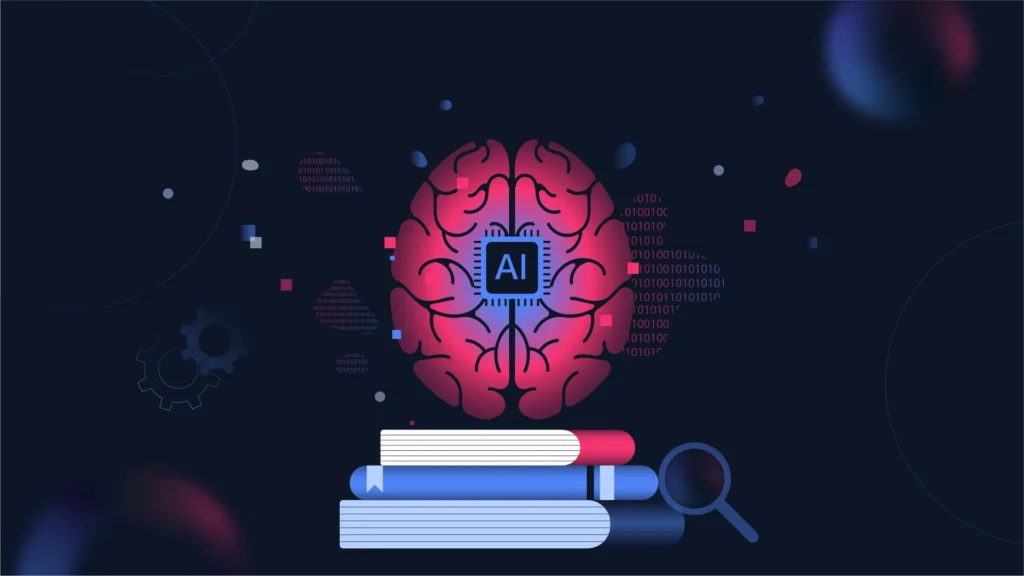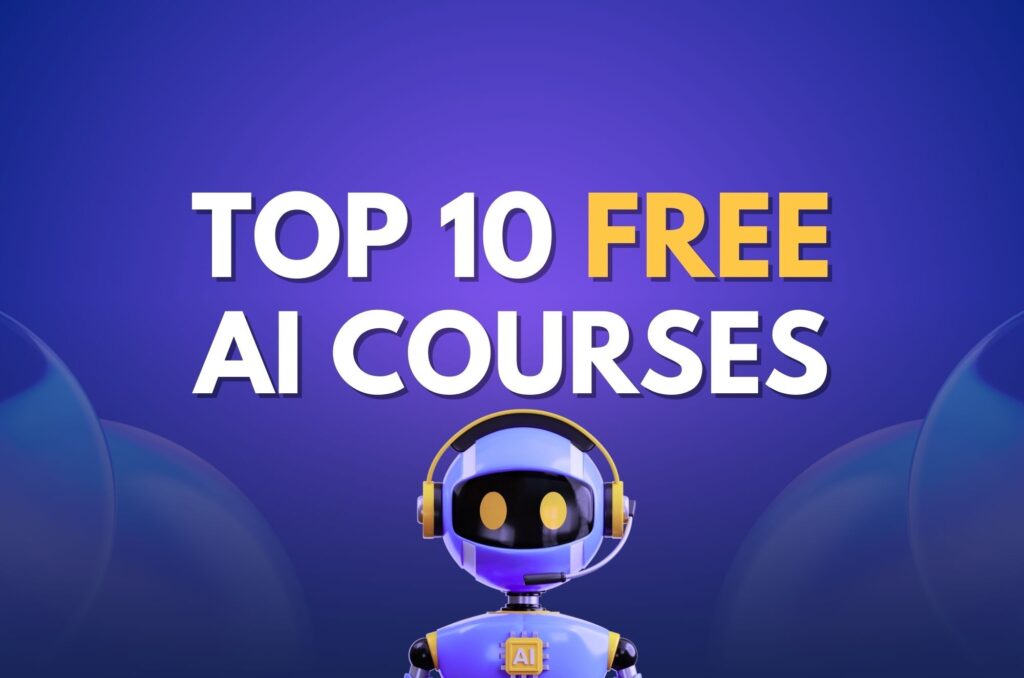Introduction
Artificial Intelligence (AI) is no longer a futuristic concept; it’s a present-day reality transforming industries worldwide. From healthcare diagnostics to financial forecasting, AI is reshaping how businesses operate and make decisions.
In today’s tech-driven economy, understanding AI isn’t just for tech enthusiasts, it’s becoming essential for professionals across various fields. Whether you’re in marketing, finance, or healthcare, AI literacy can significantly enhance your career prospects.

Why You Should Learn AI
Growing Demand for AI Professionals
The demand for AI professionals is skyrocketing. Companies are seeking individuals who can develop AI models, analyze data, and implement AI-driven solutions. This surge in demand translates to numerous job opportunities across sectors.
Applications of AI
AI’s versatility is evident in its wide range of applications:
- Healthcare: AI algorithms assist in diagnosing diseases and personalizing treatment plans.
- Finance: AI models predict market trends and detect fraudulent activities.
- Marketing: Personalized recommendations and customer segmentation are powered by AI.
- Automation: AI streamlines operations, reducing manual tasks and increasing efficiency.
Career Opportunities and Salary Potential
AI roles are not only abundant but also lucrative. While technical positions like AI Engineer, Data Scientist, and Machine Learning Specialist command impressive salaries due to their specialized expertise, there’s also a growing demand for roles that leverage AI rather than build it.
From AI-powered marketing strategists to product managers and content creators using generative tools, the future belongs to professionals who know how to work with AI, regardless of whether they code it.
Importance of Upskilling in AI
Whether you’re a tech professional or from a non-tech background, upskilling in AI can open new career avenues. Understanding AI concepts enhances your ability to work alongside AI tools and contribute to AI-driven projects.

Criteria for Choosing the Best AI Courses
When selecting an AI course, consider the following factors:
- Course Level: Identify whether the course is suitable for beginners, intermediates, or advanced learners.
- Certification and Credibility: Opt for courses that offer recognized certifications and are taught by reputable instructors or institutions.
- Platform Reputation: Choose courses from well-established platforms like Coursera, edX, Udacity, or Fast.ai, known for quality content and user support.
Top AI Courses to Take
1. AI for Everyone – Andrew Ng (Coursera)
- Best for: Beginners
- Overview: This non-technical course provides a comprehensive introduction to AI, its applications, and societal impacts. It’s ideal for individuals seeking to understand AI’s role in various industries.
- Duration: Approximately 6 hours
- Outcomes: Gain a foundational understanding of AI concepts and how to apply them in your field.
2. Machine Learning Specialization – Coursera (Andrew Ng)
- For: Beginners to Intermediate
- Overview: This specialization covers fundamental machine learning concepts, including supervised learning, unsupervised learning, and best practices.
- Duration: Approximately 3 months (at 7 hours/week)
- Outcomes: Build a solid foundation in machine learning, preparing you for more advanced AI topics.
3. Deep Learning Specialization – DeepLearning.ai (Coursera)
- For: Intermediate to Advanced
- Overview: Dive deep into neural networks, convolutional networks, and sequence models. The course emphasizes both theory and practical implementation.
- Duration: Approximately 3 months (at 5 hours/week)
- Outcomes: Develop the skills to build and train deep learning models for various applications.
4. Artificial Intelligence MicroMasters – Columbia University (edX)
- For: Advanced learners
- Overview: This graduate-level program covers AI fundamentals, robotics, and machine learning, providing a rigorous academic experience.
- Duration: Approximately 1 year (at 8-10 hours/week)
- Outcomes: Earn a MicroMasters credential and deepen your understanding of AI concepts.
5. AI Programming with Python – Udacity
- For: Intermediate learners
- Overview: Learn Python programming, linear algebra, and neural networks. The course includes hands-on projects to reinforce learning.
- Duration: Approximately 3 months (at 10 hours/week)
- Outcomes: Build a strong foundation in AI programming, preparing you for advanced AI courses.
6. Harvard’s CS50’s Introduction to AI with Python (edX)
- For: Intermediate to Advanced learners
- Overview: Explore AI concepts like search algorithms, knowledge representation, and machine learning using Python.
- Duration: Approximately 7 weeks (at 10-30 hours/week)
- Outcomes: Gain practical experience in implementing AI algorithms and understanding their applications.
7. IBM AI Developer Professional Certificate (Coursera)
- For: Beginners
- Overview: This program focuses on developing AI applications using IBM tools like Watson and IBM Cloud. It includes real-world projects to build practical skills.
- Duration: Approximately 6 months (at 4 hours/week)
- Outcomes: Acquire job-ready skills in AI development and earn a professional certificate.
8. Fast.ai Practical Deep Learning for Coders
- For: Intermediate to Advanced (with coding experience)
- Overview: A free, hands-on course that teaches deep learning by building models from scratch. Emphasizes practical applications over theory.
- Duration: Self-paced
- Outcomes: Learn to build and deploy deep learning models effectively.
9. Google AI/ML Crash Course
- For: Beginners to Intermediate
- Overview: Google’s free course offers a fast-paced introduction to machine learning, featuring interactive lessons and real-world case studies.
- Duration: Approximately 15 hours
- Outcomes: Understand machine learning concepts and apply them using TensorFlow.
10. MIT’s Introduction to Deep Learning (YouTube/OpenCourseWare)
- For: Advanced learners
- Overview: This course covers deep learning fundamentals, including neural networks and their applications in computer vision and natural language processing.
- Duration: Approximately 1 month (at 10 hours/week)
- Outcomes: Gain a deep understanding of deep learning techniques and their real-world applications.
Conclusion
Upskilling in AI is a strategic move in today’s technology-driven world. Whether you’re starting your journey or looking to deepen your expertise, there’s a course tailored to your needs. Choose a program that aligns with your current skill level and career goals, and embark on a path to becoming proficient in artificial intelligence.
FAQs
- Do I need a programming background to start learning AI?
Not necessarily. Several beginner-friendly courses, such as AI for Everyone by Andrew Ng, require no coding experience. However, if you plan to dive into machine learning or deep learning, having a basic understanding of Python will be helpful. - Are these courses free?
Some courses offer free access to content, but a fee may be required for certification. Platforms like Coursera and edX often provide financial aid options. - How long does it take to complete these courses?
Course durations vary. Short introductory courses may take a few hours, while comprehensive programs like MicroMasters can span several months. - Which AI course should I choose as a complete beginner?
If you’re just starting, courses like AI for Everyone (Coursera) or the Google AI/ML Crash Course are great entry points. They introduce core concepts without overwhelming you with technical details. - Can I learn AI without a math background?
Yes, but a basic understanding of math, especially linear algebra, probability, and calculus, will be beneficial as you progress. Some beginner courses minimize the math to focus on practical applications.





